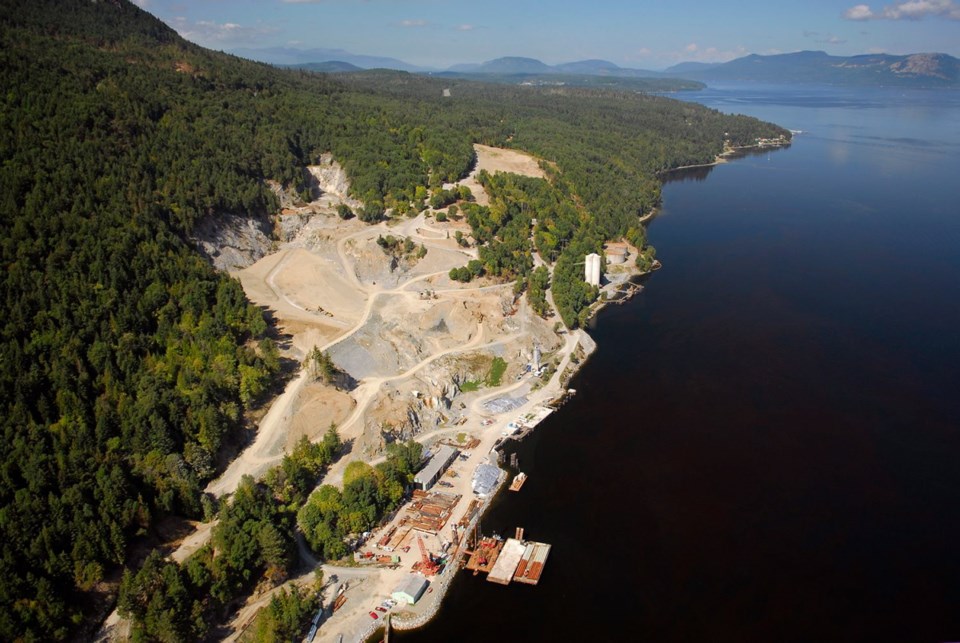The Malahat Nation and Steelhead LNG are no longer exploring the possibility of a liquefied natural gas project in the Saanich Inlet.
Plans had called for construction of a floating liquefaction production and export facility at a 525-hectare site on Bamberton industrial land owned by the Malahat Nation.
The site, south of Mill Bay, is a former cement quarry with five kilometres of waterfront on the Saanich Inlet.
Steelhead LNG made the decision after careful consideration, said Trevor Boudreau, the company’s communications and government affairs director.
“Steelhead LNG has generated strong interest from LNG customers, giving us confidence to develop at least 12 mtpa [metric tonnes per annum] for our first development,” he said.
“That capacity is greater than what we could have provided from the Bamberton location.”
He said the company, looking to develop a project that delivers low-cost. globally-competitive LNG, is excited about developing its Kwispaa LNG (formerly Sarita LNG) project in partnership with Huu-ay-aht First Nations.
That project, located southwest of Port Alberni, would adhere to “clear conditions for LNG development” set out by the province’s new NDP government.
“We believe Kwispaa LNG fits perfectly with the B.C. NDP government's LNG development road map,” he said.
“ Importantly, Kwispaa LNG is the only Canadian LNG project being developed through a co-management relationship between industry and First Nations”.
Concerns had been raised about the Malahat LNG project’s potential environmental impact.
The B.C. Green Party’s Adam Olsen, MLA for Saanich North and the Islands, was an opponent of the project. He said news of its demise was cause for celebration.
“For 27 months, the threat of a floating LNG plant hung over the Saanich Inlet. Despite the project’s implausibility from the moment it was conceived, only this news … would give me comfort,” Olsen said online.
“The project’s economic case has always been dubious at best. It put the safety of tens of thousands of residents at risk and the environmental impacts were unacceptable,” he said.
“We can do much better.”
The Malahat Nation and Steelhead LNG announced the partnership on Aug. 20, 2015.
It was one of 20 LNG proposals in various stages of development, with a variety of regulatory hurdles to face, at the time.
In a statement, Steelhead LNG said it was grateful for the time and effort Malahat Nation’s chief and council, administration and community had put into consideration of the project.
Malahat members are said to have contributed more than 2,200 hours of work as field assistants on early environmental studies.
“The information and data that we collected together has provided a better understanding of the Bamberton Lands and surrounding areas, and we hope can be used to support future Malahat Nation endeavours,” said the Steelhead statement.



